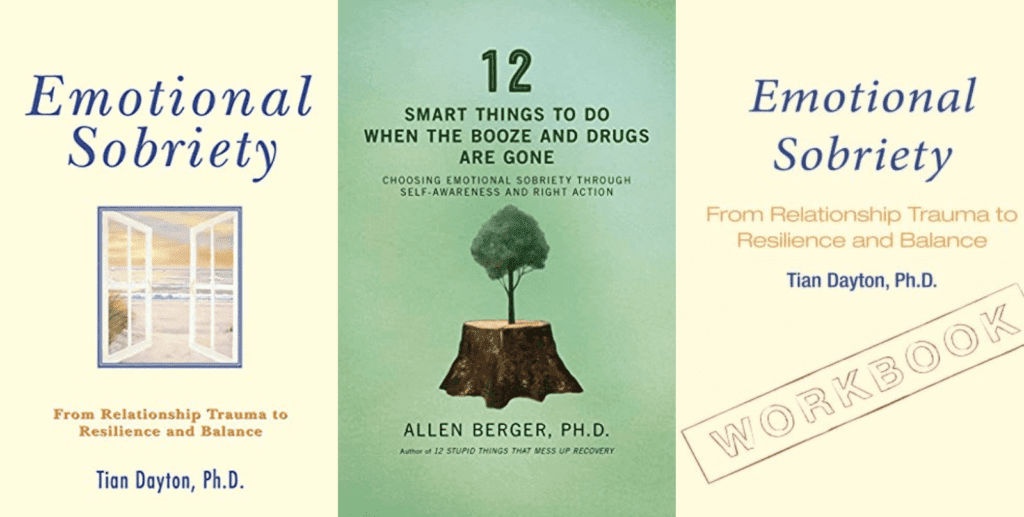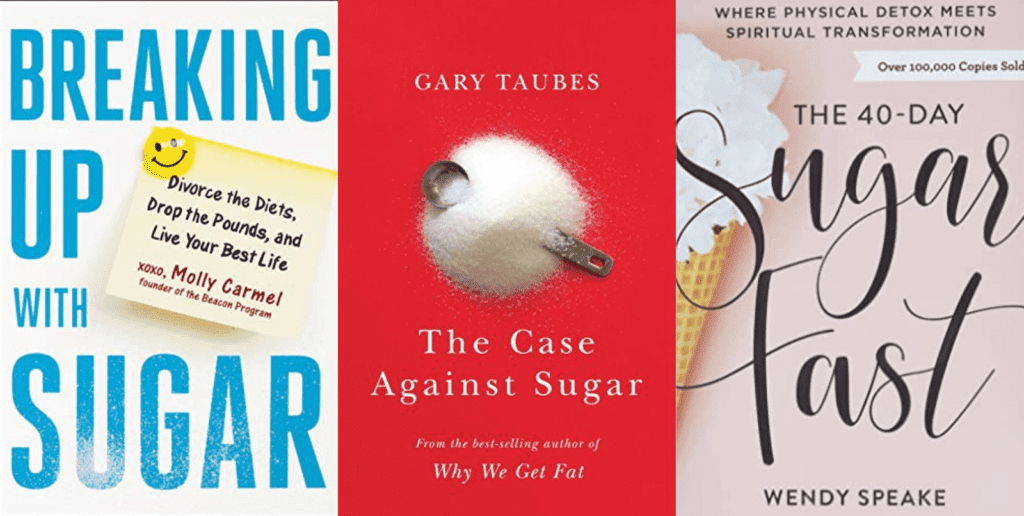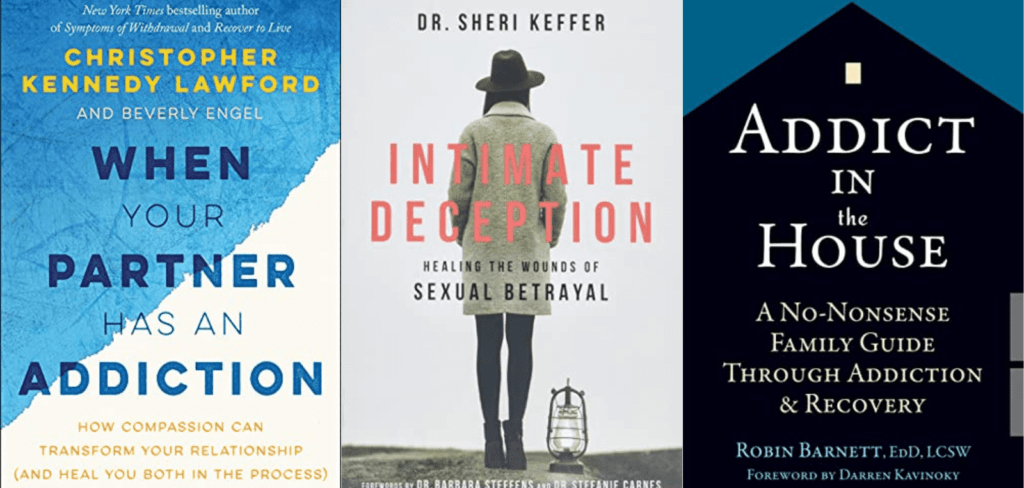The following are some of the best emotional sobriety books to help you on your recovery journey.
Disclosure: Some of the links below are affiliate links. This means that, at zero cost to you, I will earn an affiliate commission if you click through the link and finalize a purchase.
What Is Emotional Sobriety?
Emotional sobriety refers to the state of being emotionally balanced, stable, and resilient.
It involves maintaining a healthy and constructive relationship with our emotions, thoughts, and behaviors.
Emotional sobriety is often associated with recovery from addiction, but it applies to anyone seeking overall emotional well-being.
Here are a few key aspects of emotional sobriety:
1. Awareness and acceptance
Emotional sobriety starts with developing awareness of our emotions, acknowledging them without judgment, and accepting them as valid experiences.
It involves being present and mindful of our emotional states, allowing ourselves to fully feel and experience them.
2. Emotional regulation
Emotional sobriety entails having the ability to regulate our emotions effectively.
This involves recognizing and understanding our triggers, managing stressors, and developing healthy coping mechanisms.
It includes skills such as self-soothing, impulse control, and emotional resilience.
3. Authenticity and vulnerability
Emotional sobriety encourages embracing authenticity and being true to oneself.
It involves cultivating the courage to express emotions honestly and authentically, as well as being open to vulnerability and allowing others to see our true selves.
Emotional Sobriety Books
1. 12 Smart Things to Do When the Booze and Drugs Are Gone
By Allen Berger Ph. D.
Dr. Allen Berger draws on the teachings of Bill W. and psychotherapy pioneers to offer us twelve hallmarks of emotional sobriety. These “right actions” help us develop the confidence to be accountable for our behavior, to practice asking for what we want and need, and to cultivate a deeper trust in the process of life. Dr. Berger’s list of smart things includes
- understanding who you are and what’s important to you
- learning not to take others’ reactions personally
- trusting your inner compass
Related: Top 5 Tips On How To Recover From Love Addiction
2. Emotional Sobriety
By Tian Dayton
In Emotional Sobriety, Dr. Dayton teaches readers:
- How to understand the mind/body relationship of addiction and relationship trauma
- How to rewire your brain to undo the negative effects trauma has on personal, career, and romantic relationships
- How changing the way one lives and perceives adult relationships can change the way one thinks and feels and vice versa
Related: Love Addiction Test (+ Resources For Love Addiction)
3. 12 Essential Insights for Emotional Sobriety
By Allen Berger Ph.D.
In 12 Essential Insights for Emotional Sobriety, psychotherapist Dr. Allen Berger writes simply to explain and expand on the concept of emotional sobriety, combining wisdom from 12-step programs like Alcoholics Anonymous with long-accepted psychological principles. Through heart-rending stories of profound change, careful explanation, and thoughtful exercises, Dr. Berger guides you to a calmer place—and a better life.
Related: How To Achieve Emotional Sobriety? (+FREE Emotional Sobriety Worksheets)
4. Emotional Sobriety Workbook
By Tian Dayton PhD
This journal is a companion to the book Emotional Sobriety, From Relationship Trauma to Resilience and Balance which, along with The ACoA Trauma Syndrome, are companion books for The Relationship Trauma Repair Model. The journal can be used at home as a self exploration that illuminates the issues in each chapter of Emotional Sobriety. The simple act of journaling actually elevates the immune system as it brings forward disparate thoughts and feelings and allows them to organically weave themselves into a coherent picture of self and self in relation.
Related: Am I Addicted To My Phone Quiz (+Digital Detox Challenge)
5. Emotional Sobriety: A Meeting Guide for 12-Step Recovery
By Mark McConnell
This book is for any who is:
- Interested in starting a 12-Step meeting on Emotional Sobriety
- Looking for additional topics to add to an existing 12-Step meeting.
- Working one-on-one with your sponsor.
- Willing to examine the emotional triggers that impact your sobriety.
- Directing IOP recovery meetings
Related: How To Step Out Of Denial? Top 10 Steps To Overcome Denial When The Truth Is Heartbreaking
6. Boundaries in Recovery
By Taite Adams
Boundaries in Recovery was written to help you do just that. Written by someone who has been there and has had the same emotional sobriety struggles as most, this book takes a look at setting limitations from the perspective of the recovering person. Whether you need to learn to set healthy boundaries with family, partners, children, friends, or business associates, guidance is given to help the reader recognize and set healthy limits. If you learn to honor and respect yourself, and treat others with the same dignity you would want to be treated with, your whole life will change for the better.
Related: Porn Addiction Test (+Best 6 Tips On How To Get Free From Porn Addiction)
7. A Pathway to Emotional Sobriety and How to Get It
By Craig Hutson
Written by a martial artist and long-time practitioner of the Twelve Steps, this book gives you strategies and ideas which will help you in your own personal journey towards sobriety and wellness. Sponsors who have themselves effectively studied and applied Steps Six and Seven of the Twelve Steps will understand the value of this book. Emotional Sobriety will guide you through this most vital phase in a sponsor’s journey of personal growth and change utilizing the Twelve Steps. Substance abuse counselors, life coaches, and mentors will also find this a helpful collaborative piece when working with those in recovery from substance abuse.
Related: Addiction To Self Harm: Top 5 Steps To Overcome It

How Emotional Sobriety Books Can Help?
Emotional sobriety books can be a valuable resource in promoting emotional well-being and personal growth. Here’s how they can help:
1. Knowledge and Education
Emotional sobriety books provide information and knowledge about the principles, strategies, and techniques that contribute to emotional balance and resilience.
They explore various psychological concepts, coping skills, and practical advice that can help individuals better understand and navigate their emotions.
2. Perspective and Insight
These books often share personal stories and experiences, allowing readers to gain perspective on their own emotional struggles.
By hearing about others’ journeys, readers can gain insight into their own emotions and develop a sense of empathy and connection.
3. Tools and Techniques
Emotional sobriety books offer a wide range of tools and techniques for emotional regulation, self-reflection, and personal growth.
These tools can include mindfulness exercises, cognitive-behavioral therapy techniques, journaling prompts, and practical exercises that individuals can implement in their daily lives.
Related: Best 8 Mindfulness Exercises For Adults That Will Help You Regulate Your Emotions
4. Inspiration and Motivation
Reading about the journeys of others who have achieved emotional sobriety can inspire and motivate individuals on their own path towards emotional well-being.
These books often provide hope, showing that change is possible and offering guidance on overcoming obstacles and setbacks.
5. Self-Reflection and Awareness
Emotional sobriety books often encourage readers to engage in self-reflection and introspection.
They may ask thought-provoking questions, provide self-assessment exercises, or guide individuals in exploring their emotions and thought patterns.
This process of self-reflection can enhance self-awareness and facilitate personal growth.
6. Validation and Acceptance
Emotional sobriety books validate individuals’ emotions and experiences, normalizing the challenges they may face.
They emphasize the importance of self-acceptance, fostering a sense of compassion towards oneself and others.
Conclusion
Working towards emotional sobriety often requires self-reflection, therapy, and personal growth efforts.
It is a journey that involves developing emotional intelligence, honing coping skills, and fostering a positive and healthy mindset.
Remember, while books can offer valuable insights and guidance, they are not a substitute for professional therapy or personalized support.










